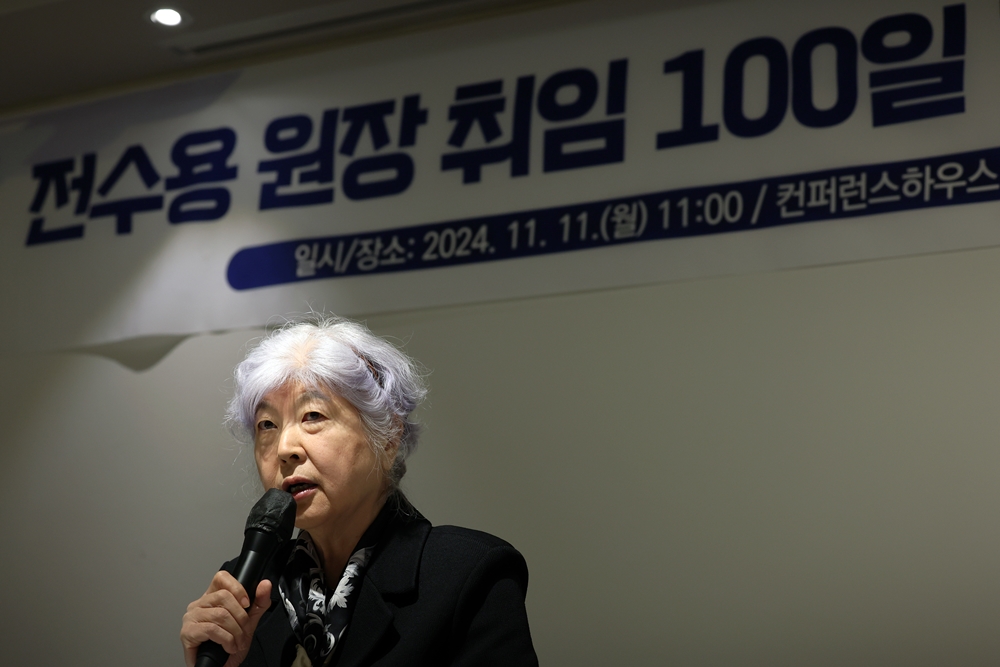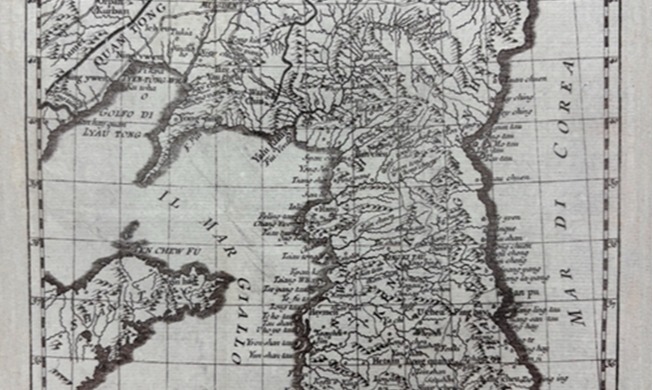
Literature Translation Institute of Korea President Chon Sooyoung on Nov. 11 speaks at a news conference held at Conference House Dalgaebi in Seoul's Jung-gu District to mark the 100th day of her term. (Lee Jun Young)
By Charles Audouin
"The Literature Translation Institute (LTI) of Korea strives to make a big leap as a bridgehead to globally promote the depth and appeal of Korean literature rather than merely translate and publish works."
LTI Korea President Chon Sooyoung on Nov. 11, the 100th day of her term, said this at a news conference held at Conference House Dalgaebi in Seoul's Jung-gu District on her institute's vision and goals.
LTI Korea announced three main objectives: stimulating global discourse on Korean literature, consolidating a global literature network and establishing a graduate school for translation of Korean literature.
For this, the institute will host forums for foreign literature researchers, translators and publishers to discuss Korean literature.
"Han Kang's Nobel Prize in Literature is the beginning, not the end," LTI Korea said. "For Korean literature to be reborn, the foundation of global discourse formation and criticism must be strengthened."
The institute will stimulate exchanges between Korean and foreign literary circles by expanding the Seoul International Writers' Festival, inviting leading reporters abroad and cooperating with foreign correspondents in Korea.
The Translation Academy, which fosters professional literary translators, will be converted into a graduate school offering master's degrees and doctorates. Run as non-degree school since 2008, the academy every year produces 30 graduates whose native tongues are from seven language groups. Eighty to 90% of them are fluent in Korean.
LTI Korea said these graduates face career difficulties as professionals since their degrees are not recognized.
"Native speaker graduates who get official degrees are expected to return to their home countries and work as Korean literature professors, agents or translators," it added.
Launched in 1996, LTI Korea through last month supported the foreign publication of 2,186 domestic literary works in 44 languages. Between 2020 and this year, 19 Korean literary works won leading foreign literature awards and 48 were nominated.
Chon said, "LTI Korea's diligent efforts play an important role in placing domestic writers on the global stage."
